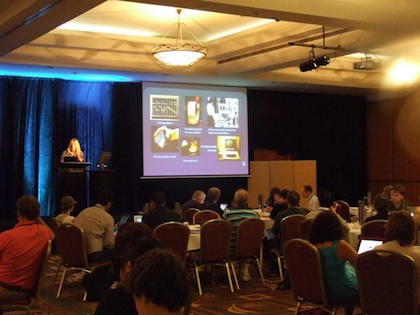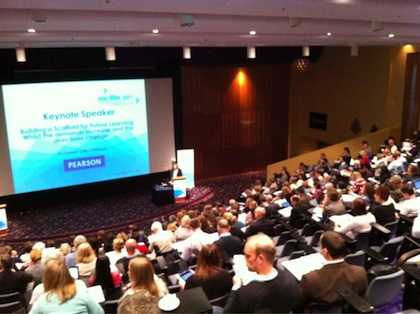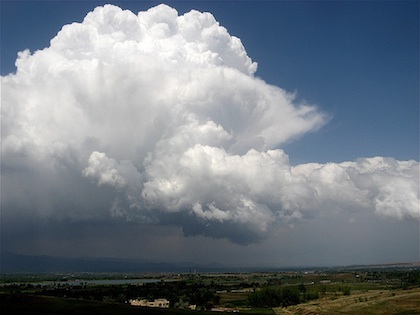It’s been too long since my last post and a lot has happened in my professional life. Things are the same, but they’ve changed – here’s a quick update.
Since coming back from FUSION 2011 mid 2011, I worked on a small research project that examined the planning for the integration of ePortfolios into degree program. I believe this is a worthwhile way to implement ePortfolios by having them embedded in a purposeful and meaningful way with authentic assessment activities. The resulting research report was submitted as the final piece of assessment for the Graduate Certificate of Higher Education (happy to say that I’ve now graduated).
Then there was a flurry of conferences from October to December that provided me with opportunities to share, learn, reconnect and be inspired. I was able to present the preliminary findings of the ePortfolio research project at the ePortfolio Australia Conference (#EAC11) in Perth last October. I also came away from the conference understanding that sufficient planning & preparation are required to introduce ePortfolios successfully, that student respond well to engaging ePortfolio tasks, and that ePortfolios provide a useful platform for student reflections on learning. While in Perth I was also able to attend the Apple Paperless Padagogy Workshop (great to see the development of tools to create epubs on the iPad platform) and the ATN Assessment Conference (#ATN11). I came away from this conference thinking more about how we can design assessment to be more meaningful in the 21st Century, how we provide authentic assessment of graduate attributes, skills and capabilities attainment, and how we might provide alternative modes of feedback such as audio.
I was on the organising committee of the Teaching and Learning with Vision Conference (#TLV11) in early November and we had a great lineup of speakers and a great vibe over the two days. We were challenged to think about using games for learning, creating innovative learning spaces, how a new generation of learners like to learn, the power of networks for learning, learnt more about QR codes, using point of view (POV) glasses to record skill development, and we shared our favourite social media & networking tools. Make sure you come along to TLV12 in November this year.

Photo By miz minh TLV11
In mid November I was fortunate enough to be able to attend the Informa Technology for Learning and Teaching Forum and caught up with friends Steve Wheeler, Tom Cochrane and Dave Cummings (amongst others). Then at the end of November there was the ConVerge conference (#ConVerge11) and I enjoyed catching up with Howard Errey, Greg Young, Joyce Seitzinger and Nancy White. Came away with a better understanding of; how MOOCs work, ways mobile devices and video conferencing can be used for engaged learning, how to create epubs, the use Diigo & Evernote for social bookmarking, and the power of connecting groups and networks.
Also late in the year I applied for a job in the School of Medicine at Deakin, and was very happy to be offered the position of Senior Lecturer, Medical Education (eLearning). This meant that I had to say goodbye to my team and colleagues in the Faculty of Business and Law and finished up on the last working day of the year. My new role is to support the use of technology in learning and teaching so has a similar focus as my previous position, but I’m also keen to develop the research component of my work to measure and evaluate the effectiveness of what we do.
In early December I was able to attend ASCILITE (#ascilite11) in Hobart and and caught up with friends, made some new connections, and got to know some of my new colleagues from the Faculty of Health. I appreciated hearing about projects involved with; learning design and the use of technology in teaching, student response systems, rubric creation and use, curation and social media, and the potential for learning analytics.

ascilite 2011 opening keynote
I started in the School of Medicine mid January and have been busy getting to know staff and students as well as learning how the medical program is delivered. The LMS (Desire2Learn) is used extensively to support the delivery of the program and I see lots of opportunities to augment that system with the use mobile devices, ePortfolios, and video and multi-media. I hope to get a few projects going and looking at how we can improve the outcomes of learning & teaching program for both students and staff.
So, while my work has been constant over the past nine months, there has been some change in the context of what I’m doing. I was very fortunate and appreciated the opportunities of professional development through conference attendance late last year and look forward to making a contribution in my new workplace.


